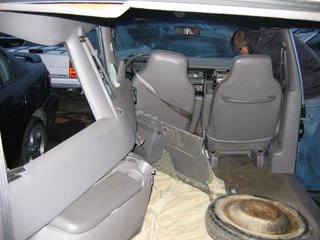11/ 20/ 2006
Review: The Best Game You Can Name by Dave Bidini, McClelland & Stewart Ltd.
Audience: Sports Illustrated magazine or Canadian Living magazine, hockey fans and readers aged 16 – 50.
Dave Bidini has been dedicated to entertaining Canadians since he was a teenager, first and foremost as a front-man of the rock band the Rheostatics but also as a writer of numerous books about sports and music. Bidini is considered to be one of the most prolific people in Canada and a possible candidate to host the television show Hockey Night in Canada, replacing either Ron Mclean or Don Cherry when they retire. This book is not a “Rock’em-Sock’em” reader; it is a roster of Canadian rock celebrities and a history lesson on the legends of the best game you can name, hockey.
The passion Bidini writes with makes the plot flow like skaters off a hockey bench. The pace makes you feel as though you can hear the gate opening and closing as the players and pages change shift. The book moves from Bidini’s losses and wins, with his team the Morningstars, to interviews about the memorable moments the veterans of the sport experienced in their glory days. The not-so-well-known players like Tim Ecclestone, Gary Unger, and Anders Hedberg, share their memories of the best goals, worst injuries and how their love of hockey impacted their lives. Bidini weaves his own personal triumphs and disappointments into a menagerie of CanRock celebrities. The Canadian line-up consists of both teammates and opponents from bands like the Bare Naked Ladies, Sloan and the Tragically Hip. Included are duplicate photographs from the hockey cards of both the professionals and the celebrities, to coincide with whom the topic surrounds.
Being a Canadian celebrity is a difficult gig, the small population and a lack of exposure in the media has made the title of being a popular Canadian artist into an oxymoron. Dave Bidini has accomplished an astounding twenty one years on the road with the Rheos and has written six books along the way, including a conceptual fiction children’s book that was accompanied with a soundtrack by the Rheostatics. Along with touring, his writing, and now the making of documentary films, Bidini is Canada’s unofficial ambassador of hockey, bringing the sport to places such as Hong Kong and the United Arab Emirates. He maintains his blue collar and down to earth attitude in his works, making them approachable to any reader with an open mind. Newcomers or non-followers of hockey can approach this book with confidence and be surprised with whom or what they know has a connection to the game.
The Best Game You Can Name is in a league of its own, one part a lamentation of lost games, one part a celebration of legendary breakaways and entirely about the love of hockey. This may be compared with his previous books, such as Tropic of Hockey or Baseballissimo, but the spirit that the players, coaches and rock stars add to the book give it more depth than one man alone can parlay. Autobiographies, like history books, provide a narrow or one-sided perception of an event. By combining the views in this layout he puts the perspectives of the teammates, opponents and coaches together, creating a rounded, and sometimes an entirely different account. Letting the players tell the story is like a Shakespearean cliché but it brings these Stanley Cup ring wearing celebrities back down to a human level.
This book makes you wish for the weather to freeze so you can flood the street and bring the neighborhood together for a good old hockey game, or dust off the old skates and get involved in the camaraderie of a local team. The commonality it draws, between the rink and rock stars, shows what the true meaning of the sport is. The shifts between character perspectives seem to come together as one message, and like a change in a line of players, they pass by unnoticeable, the only difference is a revived sense of energy. The message of this book is not meant for knuckle-heads or jocks; it is designed for lovers of literature and lovers of sport. Dave Bidini will go down in the “Hoser Hall-of Fame” as the best Right Winger of writing in Canada, he deserves acclaim for this and his past works, as well as encouragement in maintaining the glamorous title of being a Canadian celebrity.
Rating: 4 out of 5 stars











